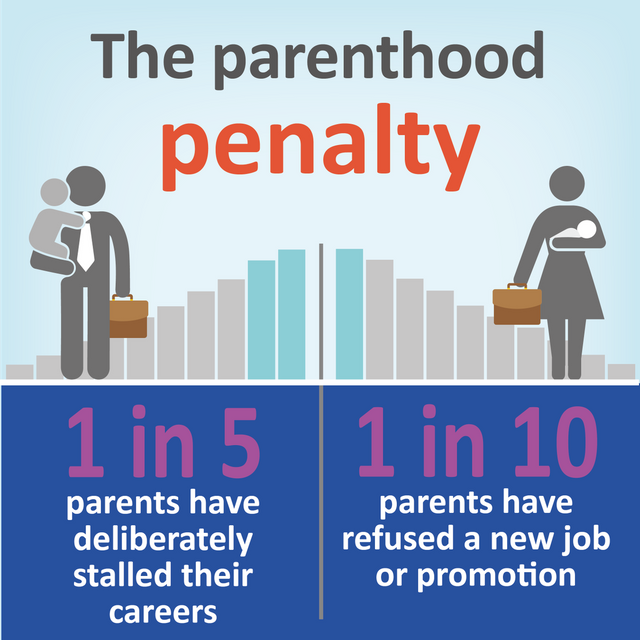The UK’s Worker Protection Act came into force last October; now is the time for all employers to act.
Deliberately stalled careers, turned down promotions, not saying goodnight to children, an increase in family arguments, eating less healthily...these are just a few examples of the impact of the workplace on working parents.
The Modern Families Index 2018 indicates that while juggling work and family life is not new, the pressures appear to be increasing. Working parents - both mothers and fathers- are left feeling overwhelmed, with a third saying they feel burnt out all or most of the time, with more than half identifying work as their main cause of burnout.
The report cites evidence of a ‘parenthood penalty’ — with parents unable to fulfil their economic potential and move agilely in the labour market, simply because they have become parents.
The right to request flexible working hasn't had the desired impact either. Less than half of parents (44%) felt that it was a genuine option in their workplace and a similar proportion (46%) said they did not work flexibly. And of those who do work flexibly, over a third said they felt burnt out all or most of the time. And many who work flexibly in theory said they had restricted or no control over where they worked or their working hours.
With the number of working parents increasing, it's clear that supporting working families is not only the right thing to do morally, but also makes good business sense. An employee who is feeling burnt out and pulled in different directions will not be an engaged one, and therefore will be unable to deliver their best for their employer.
The report suggests that flexility and autonomy are still the keys to better work-family balance. (Given the importance of autonomy on employee engagement, this is relevant for all employees, not just parents.)
It makes a number or recommendations, for example:
- Make flexibility the normal way of working and make the flexibility on offer less 'rigid'.
- Recruit for more flexible and 'human sized' jobs. Think through the roles you're recruiting for and what can realistically be done in the hours allocated to them.
- Tackle gendered assumptions about who works and who cares. Parental and paternity leave rights from day one in a new job should be available to all parents, in the same way that women have access to maternity rights.
Make flexibility the normal way of working and make the flexibility on offer less 'rigid'. Recruit for more flexible and 'human sized' jobs. Think through the roles you're recruiting for and what can realistically be done in the hours allocated to them.Tackle gendered assumptions about who works and who cares. Parental and paternity leave rights from day one in a new job should be available to all parents, in the same way that women have access to maternity rights.
Related Articles

Emails and emotion don't mix well

Event summary: Helping partners to show that people matter

How should men behave post Weinstein: 3 rules, 3 tips


HR Magazine: Half of UK workers faced toxic workplaces
Head of Resolution Zoe Wigan comments on speaking up and creating psychological safety.


HR Magazine: How to manage political polarisation at work
Matt Dean comments as recent events in America have intensified the discussion around polarisation.


Training Zone: Five 2025 training trends to address the knowing-doing gap
Matt Dean explores the knowledge gaps organisations are looking to close in 2025.





